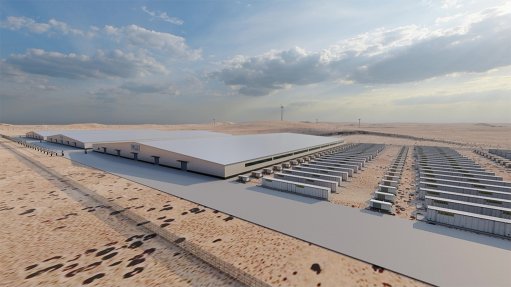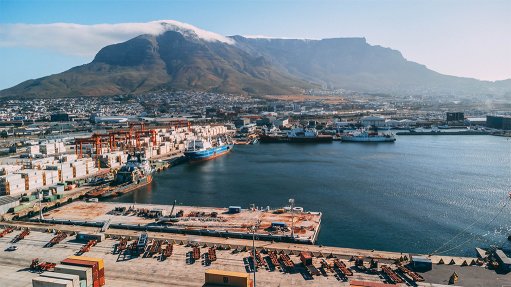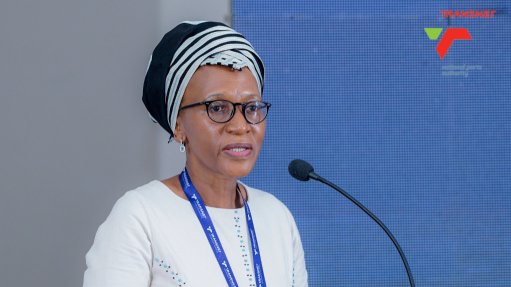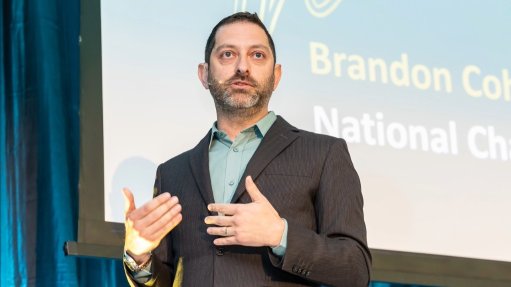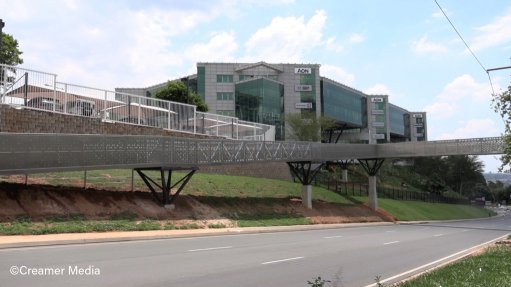South African association preparing to lobby for Biogas support
This article has been supplied.
The South African Biogas Industry Association (SABIA) is working to generate resources to complete a proposal to be submitted to the DFFE (Department of Forestry, Fisheries and the Environment) to implement an incentive scheme based on the environmental benefits of biogas. This is according to Alberto Borello, Secretary General of SABIA, a member of the Italian South African Chamber of Trade and Industries.
This proposal comes on the back of the National Waste Management Strategy, published in early 2021 by the DFFE. One of the strengths of this document is that it moves from waste hierarchy to circular economy. “This is a very important step in the right direction for the development of South Africa’s waste-to-energy sector” states Borello.
All waste-to-energy projects in South Africa are strictly dependent on the development of waste management legislation, by the capacity of the municipality to implement separate collection and attract investments to actively divert waste from reaching the landfill.
South Africa, through the implementation of the right framework under the circular economy strategy, has the potential to produce about 10 000 MW from organic waste. However, waste-to-energy projects cannot just be analysed from an energy point of view, and they have to also be implemented with the goal of reducing greenhouse gas emissions.
SABIA supports and regulates the insertion of biogas-to-energy projects at all scales, setting technical standards and legislative guidelines for large anaerobic digestion plants, landfill gas-to-energy projects, as well as small to micro decentralised solutions, that are particularly suited for rural and peri-urban areas. “The association plays an important role in developing the sector by promoting large enterprises as well as emerging SMMEs that are entering this exciting market”, concludes Borello.
Gordon Ayres, CEO of microdigester producer, Agama Biogaspro, explains that when comparing biogas (and waste-to-energy more generally) with other renewables such as solar and wind, the energy source fares moderately well. However, if taken in its full form, taking into perspective waste management, job creation, potential of using the by-product of biogas digesters as organic fertilizer, it runs ahead.
The actual energy produced by single aneorobic digestors is limited, states Ayres. “Even the biggest AD systems tend to only generate between 2 and 5 MW, but the flexibility of them is amazing. You can clean it up and use it as vehicular fuel, pipe it to homes, generate electricity and use it for direct thermal purposes” says Ayres.
Ayres advocates for small-scale biogas production as he claims that this will reach the largest amount of people with the biggest impact on population. “For instance, SA has about 22 500 public schools, these schools all are part of the National school feeding scheme providing one meal to each learner per day, a total of 9.2 million learners are fed this way. If we install just a single food-based biogas system at each school we can halve the LPG which is bought, generate 22 500 permanent jobs at no extra cost to the fiscus, generate food and food security and can be used as a science
However, South Africa is far behind in rolling out small scale biodigesters in comparisons to other BRICS countries, where this solution is well established. Small pockets of success exists in South Africa such as Bio2Watt in Bronkhorstspruit, and a number of micro-digesters installations in KZN, Limpopo and Eastern cape in schools supported by SANEDI, ARC and UNIDO. “Based on these successful interventions we are assisting the department of education into making the right decisions” concludes Ayres.
This article originally appeared in the 2021/2022 Directory of the Italian South African Chamber of Trade and Industries ITALCHAM
Article Enquiry
Email Article
Save Article
Feedback
To advertise email advertising@creamermedia.co.za or click here
Comments
Press Office
Announcements
What's On
Subscribe to improve your user experience...
Option 1 (equivalent of R125 a month):
Receive a weekly copy of Creamer Media's Engineering News & Mining Weekly magazine
(print copy for those in South Africa and e-magazine for those outside of South Africa)
Receive daily email newsletters
Access to full search results
Access archive of magazine back copies
Access to Projects in Progress
Access to ONE Research Report of your choice in PDF format
Option 2 (equivalent of R375 a month):
All benefits from Option 1
PLUS
Access to Creamer Media's Research Channel Africa for ALL Research Reports, in PDF format, on various industrial and mining sectors
including Electricity; Water; Energy Transition; Hydrogen; Roads, Rail and Ports; Coal; Gold; Platinum; Battery Metals; etc.
Already a subscriber?
Forgotten your password?
Receive weekly copy of Creamer Media's Engineering News & Mining Weekly magazine (print copy for those in South Africa and e-magazine for those outside of South Africa)
➕
Recieve daily email newsletters
➕
Access to full search results
➕
Access archive of magazine back copies
➕
Access to Projects in Progress
➕
Access to ONE Research Report of your choice in PDF format
RESEARCH CHANNEL AFRICA
R4500 (equivalent of R375 a month)
SUBSCRIBEAll benefits from Option 1
➕
Access to Creamer Media's Research Channel Africa for ALL Research Reports on various industrial and mining sectors, in PDF format, including on:
Electricity
➕
Water
➕
Energy Transition
➕
Hydrogen
➕
Roads, Rail and Ports
➕
Coal
➕
Gold
➕
Platinum
➕
Battery Metals
➕
etc.
Receive all benefits from Option 1 or Option 2 delivered to numerous people at your company
➕
Multiple User names and Passwords for simultaneous log-ins
➕
Intranet integration access to all in your organisation






